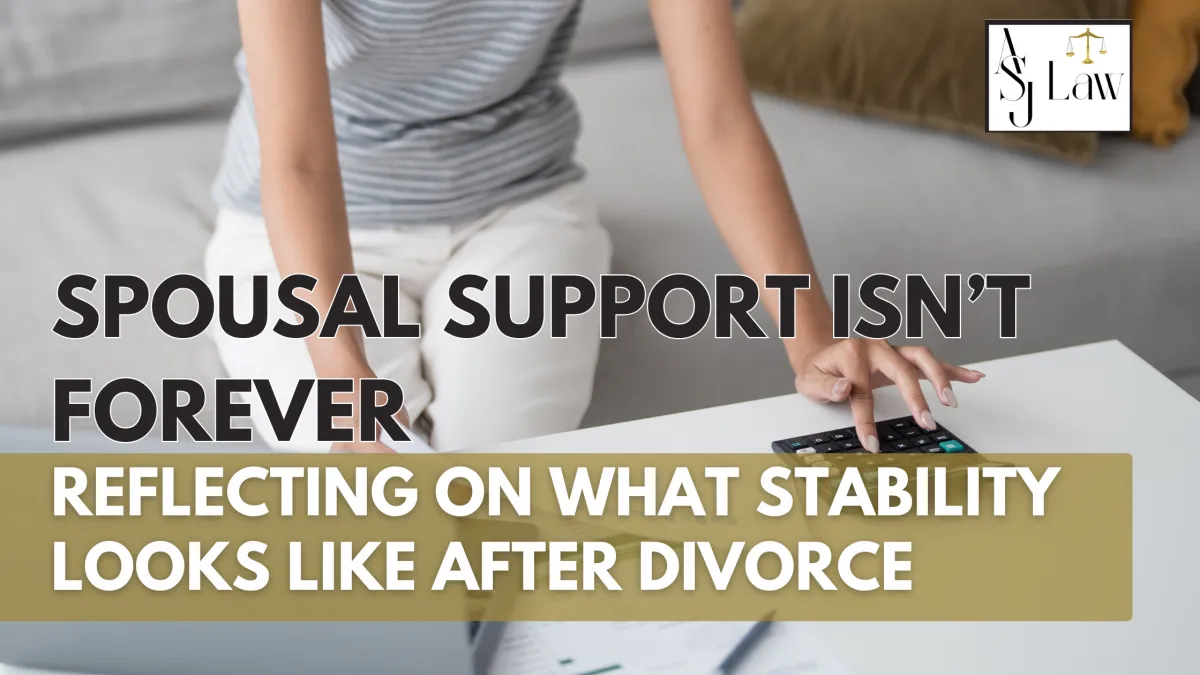
Spousal Support Isn’t Forever: Reflecting on What Stability Looks Like After Divorce
Spousal Support Isn’t Forever: Reflecting on What Stability Looks Like After Divorce
You Built a Life Now It’s Time to Redefine It
You negotiated boardroom deals, managed multi-million dollar budgets, and built a life with intention. But now, you’re navigating something no one warned you about: the long, slow weight of spousal support after divorce.
Your income hasn’t dropped, but your freedom has. And you’re wondering: Is this really the version of stability I fought for?

Let’s talk about what long term financial, emotional, and legal clarity can look like when you're no longer surviving divorce, you're rebuilding powerfully from it.
1. Spousal Support Is a Season, Not a Sentence
In Divorce Decoded, Asia Scarlett Jones explains that spousal support can feel like an invisible leash especially for women who already carry the dual weight of success and social expectation. The truth? It’s not forever.
Support agreements are fluid, not fixed. You have rights. You have options. And if your ex has moved on, leveled up, or misrepresented their situation, you may be overdue for recalibration.
Think of it as a business renegotiation. The contract served its purpose. But markets change. So do people. And so should your agreement.
2. How Spousal Support Shapes Your Boundaries and Beliefs
The payments aren’t just on paper, they live in your calendar, your budgeting app, and sometimes your nervous system.
Many high achieving women quietly carry the weight of looking 'fine' on the outside while feeling stuck on the inside. It’s not about the money it’s about the disconnect between outward success and inward freedom. For many of our clients, that’s the guilt that comes with "having more" and still feeling financially stuck.
Let’s name it: Spousal support can chip away at yourself worth if you let it. You’re not just fulfilling a court order; you’re carrying emotional residue from a chapter you closed. That ends today.
Create a mental boundary: This is a transaction, not a tether.
3. Ask Yourself: What Does Stability Now Mean to Me?
Stability isn’t static. It evolves with your clarity. After divorce, your definition of "enough" will shift. That’s not regression, it’s a realignment.
Ask yourself:
Do I feel in control of my cash flow, or just compliant with it?
Is this expense still aligned with who I’m becoming?
Have I adapted my long-term goals to reflect my new reality or am I still operating from the past?
Stability today might mean:
Separating your support payments into an automated system
Investing more in your health, business, or passive income
Rebuilding your retirement strategy with a new lens
You’re allowed to evolve. And your financial life should too.
4. Modification Isn’t a Failure It’s a Financial Strategy
Just like business deals have renegotiation clauses, your support agreement can be revisited.
When is it time to explore modification?
If your ex’s income has significantly increased
If you're approaching retirement or major life changes
If the original agreement no longer reflects your reality
Start by documenting changes. Screenshots. LinkedIn updates. Social media flexes. These receipts tell a story and courts pay attention.
Asia often tells clients: "You’re not being difficult. You’re being strategic."
5. Let This Chapter Serve You, Not Define You
Spousal support was never meant to be your legacy. You are not just a provider you are a visionary. This is your opportunity to reset. Rebuild. Realign. Let’s map out what stability looks like on your terms.


